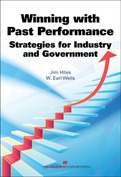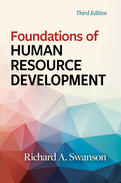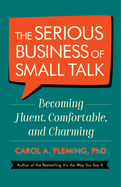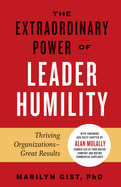Search Results: "building the future"
Results 679-684 of 1218
Use past performance to win contracts and deliver results at the lowest risk and cost!
The federal government has focused on past performance to rank bidders for almost two decades, yet both the collection and use of past performance information remain disjointed, siloed, and not fully understood in government or industry. Nonetheless, contractors' livelihoods depend on how the government collects and uses their past performance information.
Winning with Past Performance: Strategies for Industry and Government aims to enhance awareness and understanding of past performance processes as well as to promote smart business practices on both the buyer and seller sides of the equation. The authors examine all aspects of past performance, including using feedback to improve performance, the government's evolving use of past performance, and the future of past performance as an evaluation tool.
Winning with Past Performance brings it all together on the subject of past performance and is a ready reference for buyers, sellers, policymakers, contracting professionals, and service providers.
The federal government has focused on past performance to rank bidders for almost two decades, yet both the collection and use of past performance information remain disjointed, siloed, and not fully understood in government or industry. Nonetheless, contractors' livelihoods depend on how the government collects and uses their past performance information.
Winning with Past Performance: Strategies for Industry and Government aims to enhance awareness and understanding of past performance processes as well as to promote smart business practices on both the buyer and seller sides of the equation. The authors examine all aspects of past performance, including using feedback to improve performance, the government's evolving use of past performance, and the future of past performance as an evaluation tool.
Winning with Past Performance brings it all together on the subject of past performance and is a ready reference for buyers, sellers, policymakers, contracting professionals, and service providers.
The third edition of this classic is a must-have text for the human resource development (HRD) profession. It has with brand-new material on the impact of technology, globalization, and emerging business trends on HRD practice.
Human Resource Development is a large field of practice but a relatively young academic discipline. For the last two decades, Foundations of Human Resource Development has fulfilled the field's need for a complete and thoughtful foundational text. This essential text provides an up-to-date overview of the HRD profession, along with the terminology and processes required for sound HRD research and practice. Readers will gain a basic understanding of
• HRD models and theories that support best practice
• History and philosophical foundations of the field
• HRD's role in learning, performance, and change in organizations
This new edition has been updated throughout and contains new chapters on assessment, technology, globalization, and future challenges. Examples of best practices are included, along with variations in core thinking, processes, interventions, tools, and much more. This must-have reference will help both practitioners and academics add clarity to their professional journeys.
Human Resource Development is a large field of practice but a relatively young academic discipline. For the last two decades, Foundations of Human Resource Development has fulfilled the field's need for a complete and thoughtful foundational text. This essential text provides an up-to-date overview of the HRD profession, along with the terminology and processes required for sound HRD research and practice. Readers will gain a basic understanding of
• HRD models and theories that support best practice
• History and philosophical foundations of the field
• HRD's role in learning, performance, and change in organizations
This new edition has been updated throughout and contains new chapters on assessment, technology, globalization, and future challenges. Examples of best practices are included, along with variations in core thinking, processes, interventions, tools, and much more. This must-have reference will help both practitioners and academics add clarity to their professional journeys.
Small Talk Is the Single Most Important Communication Skill You Can Develop
Carol Fleming wants to show you that small talk is not as “small” as you might think. It's the foundation of every relationship, professional and personal. It is the sound of people reaching out to each other, searching for similarities, shared interests, goodwill, connections, and friendship. And it's something we all do every day with people we know. It's just the one little bit about strangers that throws some people off. Graceful social conversation can be learned, even by those requiring the smallest of baby steps.
Fleming covers the inner and outer aspects—from the right attitude to how to dress, move around, and introduce yourself. Most importantly, she lays out a series of simple, memorable conversational strategies that make it easy to go from “Nice weather we're having” to a genuine, rewarding give-and-take. But she won't tell you what to say. Believe it or not, you already have what you need inside you. She merely provides the keys to unlock it.
Small talk is the language of welcome, the extension of friendliness, the gracious acknowledgment of others, the kindly exchange of introductions and smiles, and the creation of a safe, courteous social space—and this is what has you terrified? After you read this book, you'll wonder what all the fuss was about.
Carol Fleming wants to show you that small talk is not as “small” as you might think. It's the foundation of every relationship, professional and personal. It is the sound of people reaching out to each other, searching for similarities, shared interests, goodwill, connections, and friendship. And it's something we all do every day with people we know. It's just the one little bit about strangers that throws some people off. Graceful social conversation can be learned, even by those requiring the smallest of baby steps.
Fleming covers the inner and outer aspects—from the right attitude to how to dress, move around, and introduce yourself. Most importantly, she lays out a series of simple, memorable conversational strategies that make it easy to go from “Nice weather we're having” to a genuine, rewarding give-and-take. But she won't tell you what to say. Believe it or not, you already have what you need inside you. She merely provides the keys to unlock it.
Small talk is the language of welcome, the extension of friendliness, the gracious acknowledgment of others, the kindly exchange of introductions and smiles, and the creation of a safe, courteous social space—and this is what has you terrified? After you read this book, you'll wonder what all the fuss was about.
“This inspiring book belongs on the desk of every CEO and politician. With eye-opening case studies and recommended behaviors in every chapter, it's an indispensable user guide for servant leaders.”
—Ken Blanchard, coauthor of The New One Minute Manager and coeditor of
Servant Leadership in Action
On the most fundamental level, leaders must bring divergent groups together and forge a consensus on a path forward. But what makes that possible? Humility—a deep regard for the dignity of others—is the key, says distinguished leadership educator Marilyn Gist.
Leadership is a relationship, and humility is the foundation for all healthy relationships. Leader humility can increase engagement and retention. It inspires and motivates. Gist offers a model of leader humility derived from three questions people ask of their leaders: Who are you? Where are we going? Do you see me? She explores each of these questions in depth, as well as the six key qualities of leader humility: a balanced ego, integrity, a compelling vision, ethical strategies, generous inclusion, and a developmental focus.
Much of this book is based on Gist's interviews with a dozen distinguished leaders of organizations such as the Mayo Clinic, Costco, REI, Alaska Airlines, Starbucks, and others. And the foreword and a guest chapter are written by Alan Mulally, the legendary leader who brought Ford back from the brink of bankruptcy after the 2008 financial collapse and whose work is an exemplar of leader humility.
—Ken Blanchard, coauthor of The New One Minute Manager and coeditor of
Servant Leadership in Action
On the most fundamental level, leaders must bring divergent groups together and forge a consensus on a path forward. But what makes that possible? Humility—a deep regard for the dignity of others—is the key, says distinguished leadership educator Marilyn Gist.
Leadership is a relationship, and humility is the foundation for all healthy relationships. Leader humility can increase engagement and retention. It inspires and motivates. Gist offers a model of leader humility derived from three questions people ask of their leaders: Who are you? Where are we going? Do you see me? She explores each of these questions in depth, as well as the six key qualities of leader humility: a balanced ego, integrity, a compelling vision, ethical strategies, generous inclusion, and a developmental focus.
Much of this book is based on Gist's interviews with a dozen distinguished leaders of organizations such as the Mayo Clinic, Costco, REI, Alaska Airlines, Starbucks, and others. And the foreword and a guest chapter are written by Alan Mulally, the legendary leader who brought Ford back from the brink of bankruptcy after the 2008 financial collapse and whose work is an exemplar of leader humility.
Majora Carter shows how brain drain cripples low-status communities and maps out a development strategy focused on talent retention to help them break out of economic stagnation.
"My musical, In the Heights, explores issues of community, gentrification, identity and home, and the question: Are happy endings only ones that involve getting out of your neighborhood to achieve your dreams? In her refreshing new book, Majora Carter writes about these issues with great insight and clarity, asking us to re-examine our notions of what community development is and how we invest in the futures of our hometowns. This is an exciting conversation worth joining.”
—Lin-Manuel Miranda
How can we solve the problem of persistent poverty in low-status communities? Majora Carter argues that these areas need a talent-retention strategy, just like the ones companies have. Retaining homegrown talent is a critical part of creating a strong local economy that can resist gentrification. But too many people born in low-status communities measure their success by how far away from them they can get.
Carter, who could have been one of them, returned to the South Bronx and devised a development strategy rooted in the conviction that these communities have the resources within themselves to succeed. She advocates measures such as
• Building mixed-income instead of exclusively low-income housing to create a diverse and robust economic ecosystem
• Showing homeowners how to maximize the long-term value of their property so they won't succumb to quick-cash offers from speculators
• Keeping people and dollars in the community by developing vibrant “third spaces”—restaurants, bookstores, and places like Carter's own Boogie Down Grind Cafe
This is a profoundly personal book. Carter writes about her brother's murder, how turning a local dumping ground into an award-winning park opened her eyes to the hidden potential in her community, her struggles as a woman of color confronting the “male and pale” real estate and nonprofit establishments, and much more. It is a powerful rethinking of poverty, economic development, and the meaning of success.
"My musical, In the Heights, explores issues of community, gentrification, identity and home, and the question: Are happy endings only ones that involve getting out of your neighborhood to achieve your dreams? In her refreshing new book, Majora Carter writes about these issues with great insight and clarity, asking us to re-examine our notions of what community development is and how we invest in the futures of our hometowns. This is an exciting conversation worth joining.”
—Lin-Manuel Miranda
How can we solve the problem of persistent poverty in low-status communities? Majora Carter argues that these areas need a talent-retention strategy, just like the ones companies have. Retaining homegrown talent is a critical part of creating a strong local economy that can resist gentrification. But too many people born in low-status communities measure their success by how far away from them they can get.
Carter, who could have been one of them, returned to the South Bronx and devised a development strategy rooted in the conviction that these communities have the resources within themselves to succeed. She advocates measures such as
• Building mixed-income instead of exclusively low-income housing to create a diverse and robust economic ecosystem
• Showing homeowners how to maximize the long-term value of their property so they won't succumb to quick-cash offers from speculators
• Keeping people and dollars in the community by developing vibrant “third spaces”—restaurants, bookstores, and places like Carter's own Boogie Down Grind Cafe
This is a profoundly personal book. Carter writes about her brother's murder, how turning a local dumping ground into an award-winning park opened her eyes to the hidden potential in her community, her struggles as a woman of color confronting the “male and pale” real estate and nonprofit establishments, and much more. It is a powerful rethinking of poverty, economic development, and the meaning of success.























